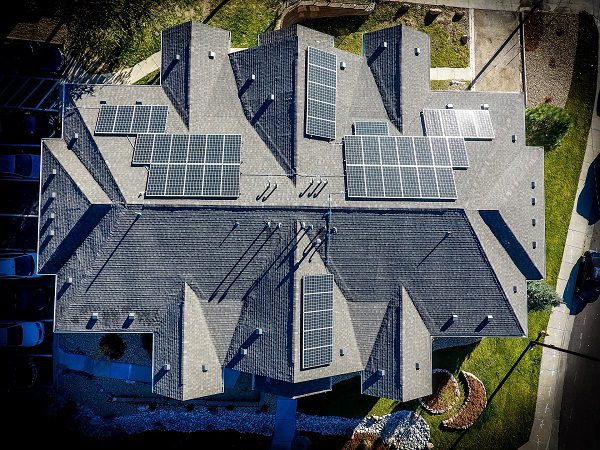Introduction:
In the ever-evolving landscape of technology and environmental consciousness, the future of sustainable living lies in the seamless integration of solar energy into smart homes. As we navigate a world that increasingly demands eco-friendly solutions, harnessing the power of the sun for our daily energy needs not only reduces our carbon footprint but also paves the way for a more sustainable and efficient lifestyle. This article delves into the exciting prospects that lie ahead as solar energy converges with smart home technology, creating a harmonious synergy that promises a greener and more intelligent future.
The Rise of Solar Energy:
Solar energy has emerged as a key player in the pursuit of sustainable living. With advancements in solar panel technology and a growing emphasis on renewable resources, harnessing the sun’s power has become more accessible than ever. The sun, a perennial source of energy, provides an abundant and clean alternative to traditional fossil fuels. As concerns about climate change intensify, solar energy stands out as a beacon of hope, offering a viable solution to reduce our reliance on non-renewable resources.
Integration with Smart Home Technology:
The real game-changer comes with the integration of solar energy into smart homes. Smart home technology has revolutionized the way we interact with our living spaces, providing unparalleled convenience, security, and energy efficiency. When combined with solar power, these systems can work in tandem to create a sustainable and intelligent living environment.
One of the key advantages of integrating solar energy into smart homes is the ability to monitor and optimize energy consumption. Smart home devices, equipped with artificial intelligence, can learn user behavior patterns and adjust energy usage accordingly. This not only ensures optimal energy efficiency but also contributes to cost savings in the long run. Imagine a home that understands when to draw power from the grid and when to rely on stored solar energy – a truly intelligent and eco-conscious abode.
Energy Storage Solutions:
To address the intermittent nature of solar power generation, energy storage solutions play a crucial role. Smart homes equipped with advanced energy storage systems can store excess energy generated during sunny days for use during periods of low sunlight. This not only enhances the reliability of solar energy but also provides homeowners with a consistent and uninterrupted power supply.
Battery technology has witnessed significant advancements, making it increasingly feasible for homeowners to store surplus energy. These batteries, integrated into the fabric of smart homes, serve as reservoirs of clean power, reducing dependence on traditional energy sources and contributing to a more sustainable lifestyle.
Cost Savings and Incentives:
The integration of solar energy into smart homes is not only environmentally friendly but also economically viable. Governments and local authorities around the world are offering incentives and subsidies to encourage the adoption of solar technology. These incentives, coupled with the long-term cost savings associated with solar energy, make it an attractive investment for homeowners.
Environmental Impact:
The environmental benefits of integrating solar energy into smart homes cannot be overstated. By reducing reliance on traditional energy sources, we decrease our carbon footprint and contribute to the fight against climate change. Smart homes, with their ability to monitor and adjust energy consumption, play a pivotal role in ensuring that the energy generated is used efficiently, further minimizing environmental impact.
The integration of solar energy into smart homes also fosters a culture of environmental consciousness. Homeowners become active participants in the quest for sustainability, taking pride in their contribution to a cleaner planet. As the collective shift towards eco-friendly living gains momentum, the positive impact on the environment becomes increasingly significant.
Challenges and Solutions:
While the future of sustainable living through the integration of solar energy into smart homes is promising, challenges do exist. The initial cost of installing solar panels and smart home devices can be a deterrent for some homeowners. However, as technology continues to advance, these costs are expected to decrease, making the transition more accessible to a broader audience.
Another challenge lies in the need for widespread infrastructure development to support the integration of solar energy into the existing power grid. Governments and utility companies need to invest in upgrading the infrastructure to accommodate the growing number of solar-powered homes. As awareness and demand increase, addressing these challenges becomes a crucial aspect of realizing the full potential of sustainable living.
Conclusion:
The future of sustainable living is intertwined with the seamless integration of solar energy into smart homes. As technology continues to advance and environmental consciousness deepens, the prospect of living in homes that are not only intelligent but also environmentally responsible is within reach. The rise of solar energy, coupled with the capabilities of smart home technology, promises a greener, more efficient, and economically viable way of life.

































